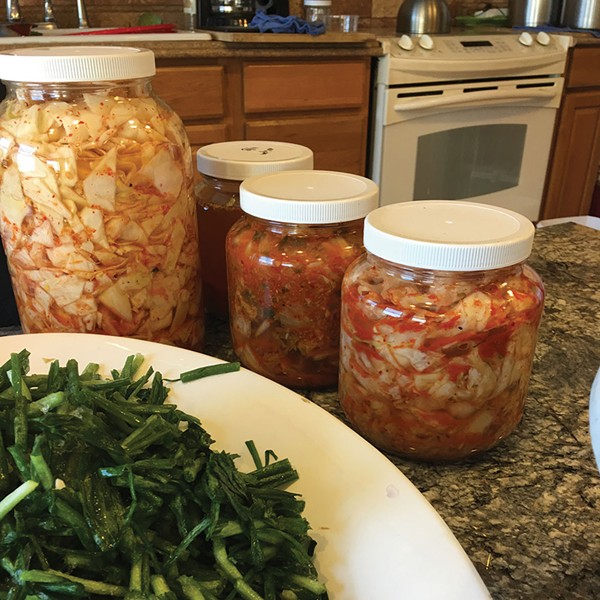According to Erin McGuire, Policy Director at the National Farm to School Network, "The [USDA] Farm-to-School Program is the only public funding stream dedicated to farm-to-school and nothing else." The program was created by Congress and USDA in 2013 in response to a grassroots national movement. Part of its mandate is to fund projects across the country, which is important because farm-to-school is different in every community. "Without the requirement for geographic diversity," says McGuire, "funding could easily go only to states with well-developed infrastructure and shovel-ready programs. This program really helps a wide range of projects get funded and helps deepen and broaden the movement."
Engaging Tastebuds
"You can put healthy food in front of a child all day, but that doesn't mean they'll eat it," says PCSD Food Services Director Al Muhlnickel. "Education is key in getting children to understand why it's there."
Levato agrees. "We hear complaints about the new standards for school meals and that kids won't want to eat those healthier meals, leading to waste," she explains. "That info isn't entirely accurate. In places where that's happening, the problem is that the food just got changed and nobody's going in and getting the kids pumped to eat kale." Engaging students is vital, as well as an opportunity.
At Hawthorne Valley Waldorf School in Ghent, farm life is an integral educational component. Children glean their snack from seasonal crops, and third graders spend a week living on the farm, becoming immersed in farm life. Weekly farm classes for all grade levels teach children animal tending, spring planting, and dairy production for Hawthorne Valley Farm's retail store. "The kids look forward to it," says Amy Flaum, Director of Admissions. The lunch program feeds just 75 students, so ingredients are sourced from the campus farm, as well as through relationships the chef has built with other farms. The Millbrook School sees potential for advanced science research projects and leadership opportunities within the occasion to understand food productions' seasonal vibrations. Through a grant from the Edward E. Ford Foundation in 2013, the school was enabled to build a hoop house for year-round farming and academic projects.
With a new recipe book in hand developed in partnership with the Culinary Institute of America, Muhlnickel aims to experiment with new recipes to keep healthy eating exciting. At this year's open houses, PCSD tried the Tuscan kale, beet hummus, roasted squash, and broccoli au gratin, and asked parents and students to vote on which items should be added to the schools' menus. "It feels slow to change the habits of a lifetime," Muhlnickel says, "but starting young with these children, this is the place and the way to do it."
Bringing Health to the Table
In the kitchen at Rondout Valley High School, Food Services Director Chris Van Dam, students, and volunteers made 130 pounds of organic applesauce this fall from a 3,000 pound donation of local apples. As with a recent classroom cooking demo on how chickpeas become hummus, Van Dam notes, "It's amazing how once kids got involved, they'd taste it, and a good 80 percent said, 'I love this.'"
Like many districts, not all Rondout Valley Schools have cooking equipment in their kitchens, as many schools receive their food ready-to-serve. "Our employees work a four-hour workday. There's not a lot of extra time to do a lot of cooking," Van Dam explains. But food made from scratch is still a priority. Goals for this summer are to buy tomatoes at the height of the season when prices are low, and minimally process them into sauce that can be used by the schools throughout the year.
In rural farming communities, farm-to-school means connecting the next generation to the local food system. "We have everything we need right here to be an amazing farm-to-school model," says Nicci Cagan, who became involved with the effort when her son entered Marbletown Elementary. In 2007, she co-founded From the Ground Up, an organization that has worked in a variety of capacities to study and champion the viability of farm-to-school in the region. She works closely with Deborah DeWan, executive director of the Rondout Valley Growers Association. "Our farms here in Ulster County are relatively small scale, so questions arise like, what are the needs of the school, and are local farmers able to meet the quantity needed by schools?" says DeWan.
















